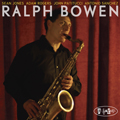www.allaboutjazz.com
When Posi-Tone Records founder Marc Free was growing up, he looked forward to each new record purchase, cherishing the cover artwork, devouring the liner notes and most of all, feasting on the music. He came to love the music and albums issued by iconic labels such as Blue Note and Impulse!, knowing that even if he hadn’t heard of the artist, it was likely to be a quality recording by a great musician.
And when Free launched Posi-Tone in 1994, he made those remembrances his business plan.
“I hadn’t intended it; it wasn’t my dream,” says Free of the company’s founding. “It was kind of an outgrowth of other things.”
Technically, he started his record-producing career when he built a studio in his mother’s house, ala Rudy Van Gelder, the Blue Note engineering master whose work set the standard for sound and quality in the 1950s. Free had even hoped to make a documentary on Van Gelder at one point, conducting interviews and gathering research, but the project ultimately fell apart.
“He didn’t think a documentary was the right way to tell the story and he never gave me the permission to do it,” says Free.
A jazz guitarist, Free used his studio space to record friends and other musicians whose music he enjoyed. A chance to record multi-instrumentalist Sam Rivers performing at Los Angeles’ Jazz Bakery in 2002 led to a decision to turn the underground label into a “real business.”
“We try to make records we want to listen to,” he says.
At a time many labels struggle to find a niche, Posi-Tone has emerged with a solid lineup of well-crafted recordings, packaged in distinctive cardboard sleeves. Rather than focus on a particular genre of music, Posi-Tone’s stable of artists are picked by Free and partner/engineer Nick O’Toole.
“What we decided to do was go out to New York three or four times per year to scout for talent,” Free says. “That’s where the musicians who are more serious about making a career in jazz are.”
When a potential Posi-Tone artist is found, Free says the label will record them in a New York studio, such as Acoustic Recording Brooklyn or System 2 studios, also in Brooklyn. The masters are then taken to Los Angeles for post-production work.
This method has connected the label to a diverse collection of musicians, including saxophonist Sarah Manning, trombonist Alan Ferber and trumpeter Jim Rotondi. Free notes he doesn’t sign artists to long-term deals, and allows them to retain all of the publishing rights to their music.
“I can’t tell you how many people in the recording business told me I was crazy,” he says. “[One record company executive] said, ‘your roster of artists and publishing rights is what you build your business on.’ And I said, ‘No, my label’s reputation is what I’m building my business on.'”
Which, Free says, strikes at the biggest hurdle facing new artists and new labels in today’s marketplace: reissues. A quick look at the upcoming releases page on AAJ shows a deluge of reissued jazz recordings every month, with new CDs which repackage and reissue works by everyone from bandleader Artie Shaw to saxophonist Zoot Sims. This means a young artist doesn’t only have to compete with other musicians of today, but those from the last 80 years as well.
“I have a hard time competing with John Coltrane when he’s got 60 years of marketing behind him,” Free says.
The problem, as Free sees it, is the copyright act of 1978, which extended the time before the rights to musical compositions pass into public domain from 28 to 75 years. This meant the recording companies who owned the rights to music and recordings made in the 1950s and 1960s can continue to produce and sell the music for years. Hence the belief that building the back catalogue is the key to a label’s survival.
“All of us are struggling with these issues all the time,” says Free.
Another issue confronting labels concerns digital distribution: Free is sticking to emphasizing direct sales of physical CDs because he says the economics just don’t work with downloads. He says the average online customer won’t download a full CD, reducing the revenue to the label (and artist) to a fraction of what CDs net. Consequently, he says he would need to sell to 14 online customers to realize what he can earn for one CD sale.
“The music isn’t in any danger, but the record labels making recordings may well be,” Free says. He’s marketing the company’s releases through Amazon, the label’s website and with distributors outside the United States. “We’re seeing tremendous response to our efforts.”
Summing his philosophy up, Free says: “The answer is to make more and better records.
“We’re good for jazz, we’re good for business and we make good records.”
Selected Posi-Tone releases
 Doug Webb
Doug Webb
Midnight
2010
Hooking up with bassist Stanley Clarke and keyboard player Larry Goldings for a set of sweetly swinging chestnuts has saxophonist Webb playing in fine form. Although a session veteran, this is Webb’s first release as a headliner and it gives him a chance to stand out. Webb plays with smooth tone and uses the full range of his tenor, which works well on ballads such as “I’ll Be Around” and “Fly Me to the Moon.”
Webb builds his solos skillfully and is matched by the quality of Clarke’s and Goldings’ turns. Clarke offers a deep acoustic bass sound throughout, getting some amazingly legato notes that fill the quartet’s sound.
 Sarah Manning
Sarah Manning
Dandelion Clock
2010
The demure face looking up from the cover of Dandelion Clock contrasts Manning’s often aggressive, experimental style, as she plays over a collection of original tunes and two covers, Michel Legrand‘s “The Windmills of Your Mind” and “The Peacocks” by Jimmy Rowles.
Her compositions offer enough harmonic room for Manning to craft exploring solos, often using long runs that seem to end in question marks. Never one to settle for an easy note choice when there’s a more interesting one available, her solos soar in such post-bop ballads as “Marbles” and “Habersham Street.”
 Orrin Evans
Orrin Evans
Faith in Action
2010
Evans has been growing into a major figure in jazz piano, thanks to releases as strong as his 2010 release in tribute to saxophonist Bobby Watson. Combining his own compositions and five by Watson, Evans plays smoothly through oblique runs and blues turns on solos, and lets his accompanists—which include bassist Luques Curtis and drummers Nasheet Waits, Rocky Bryant and Gene Jackson—provide a solid base for his work.
Watson’s “Appointment in Milano” features a pounding bottom underneath Evans’ swift runs, which alternate between sweet scales and modal triplets. The delightful “Beattitudes,” another Watson gem, combines an airy intro with a gentle melody. Musicians know it takes more to keep a ballad moving than a burning up-tempo number, and Evans shows his real chops on this one.
 Brandon Wright
Brandon Wright
Boiling Point
2010
Saxophonist Wright is clearly a student of the 1960s, and these eight tunes—including five original compositions—show he learned well. This is a disc fans of swinging, smoky jazz will favor. Wright never overplays and fits in pianist David Kikoski‘s playing marvelously. Case in point, the interplay on Jimmy Van Heusen’s “Here’s That Rainy Day.” With Kikoski comping sweetly, Wright gets just enough blues to keep his solo emotional without going saccharine. On the other side of the coin, the interplay between Wright, Kikoski and trumpeter Alex Sipiagin at the crescendo near the end of the samba-based “Castaway” is a real treat. All are playing hard but not over each other.
 Jim Rotondi
Jim Rotondi
1000 Rainbows
2010
Rotondi’s smooth chops and smart tune selection make this a delicious outing. Playing alongside a capable four-piece band, including Joe Locke on vibes, Danny Grissett on piano, bassist Barak Mori and Bill Stewart on drums, Rotondi shines on his compositions “Bizzaro World,” “One for Felix” and “Not Like This,” a beautiful ballad duet with Locke.
 Doug Webb
Doug Webb Sarah Manning
Sarah Manning Orrin Evans
Orrin Evans Brandon Wright
Brandon Wright Jim Rotondi
Jim Rotondi

